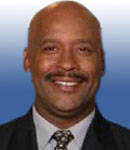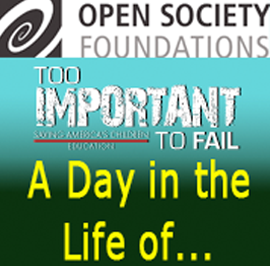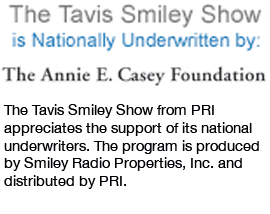Friday, February 7 – Friday, February 14
 Peter Gleick  Isabel Allende  Catherine Russell  Paul Rieckhoff  Edgar Barens |
 Bill Fletcher Jr.  George Johnson  Patrick Kline  Jeffrey Karoff |
California is suffering through one of its worst droughts ever. Some communities could run out of water unless there’s a drastic increase in precipitation, but weather forecasts are not optimistic. The drought isn’t just a local problem—its effects are likely to sweep across the nation soon. Peter Gleick, president of the Pacific Institute in Oakland, CA, talks about the severity of the drought and the potential dangers ahead. Last month, a small delegation of African American artists traveled through Israel and Palestine to get a firsthand look at the daily lives of Palestinians. What they saw shocked and angered them. Bill Fletcher Jr., senior scholar with the Institute for Policy Studies, led the delegation and shares his perspective on the region. Isabel Allende started her career as a prominent journalist in her native Chile. She became a political refugee after her cousin, Chilean president Salvador Allende, was overthrown and killed in a coup in 1973. As an exile in Venezuela, she reinvented herself into a human rights activist and author. More than 30 years later, she’s internationally renowned for her work. She joins us to discuss her latest book, “Ripper”. Commentator George Johnson offers his take on the terror threat facing athletes and spectators at this year’s Winter Olympic Games in Sochi, Russia in his 3-minute sports drill. Considering her pedigree, Catherine Russell was destined to be a musical gem. Her father, Luis Russell, was a legendary bandleader, arranger, composer, and Louis Armstrong’s long-time musical director. Her mother, Carline Ray, was a pioneering bassist, guitarist, and vocalist. Catherine Russell is herself a preeminent jazz vocalist, and she joins us to share her latest album, “Bring It Back”. President Obama’s December speech on income inequality noted that children in countries like Canada, Germany, and France will enjoy greater social mobility in their lifetimes than American kids. Scholars from Harvard and the University of California Berkeley examined those consequences in the study, “Where is the Land of Opportunity? The Geography of Intergenerational Mobility in the U.S.” Patrick Kline, professor of economics at UC Berkeley and one of the authors of the study, joins us to discuss its findings. According to the most recent estimates from the Department of Veterans Affairs, the suicide rate among male veterans under the age of 30 rose by 44 percent between 2009 and 2011. Overall, two young veterans, men and women, and 22 veterans of all ages take their own lives every day. Paul Rieckhoff, founder and CEO of Iraq and Afghanistan Veterans of America (IAVA), discusses this disturbing trend. You could call Ra Paulette a sculptor, an excavator, or even a geologist. He describes himself as a cave digger—although he does much more than dig caves. He creates massive cathedral-like art pieces by carving into the sandstone hills of New Mexico. His passion for the work puts him at odds with his patrons. Jeffrey Karoff, director of the Oscar-nominated short documentary, “CaveDigger”, joins us to share Paulette’s story. Twenty percent of America’s prison population is elderly. And in the next decade, nearly 100,000 inmates will die alone in their cells. One maximum security prison created a hospice program to care for dying inmates. The documentary, “Prison Terminal: The Last Days of Private Jack Hall”, follows one inmate as he approaches his final days. The film’s director, Edgar Barens, joins us to discuss his Oscar-nominated short film. |



